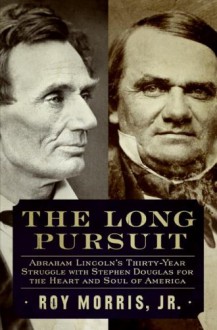In this compelling narrative, renowned historian Roy Morris, Jr., expertly offers a new angle on two of America's most towering politicians and the intense personal rivalry that transformed both them and the nation they sought to lead in the dark days leading up to the Civil War. For the better...
show more
In this compelling narrative, renowned historian Roy Morris, Jr., expertly offers a new angle on two of America's most towering politicians and the intense personal rivalry that transformed both them and the nation they sought to lead in the dark days leading up to the Civil War. For the better part of two decades, Stephen Douglas was the most famous and controversial politician in the United States, a veritable "steam engine in britches." Abraham Lincoln was merely Douglas's most persistent rival within their adopted home state of Illinois, known mainly for his droll sense of humor, bad jokes, and slightly nutty wife. But from the time they first set foot in the Prairie State in the early 1830s, Lincoln and Douglas were fated to be political competitors. The Long Pursuit tells the dramatic story of how these two radically different individuals rose to the top rung of American politics, and how their personal rivalry shaped and altered the future of the nation during its most convulsive era. Indeed, had it not been for Douglas, who served as Lincoln's personal goad, pace horse, and measuring stick, there would have been no Lincoln-Douglas debates in 1858, no Lincoln presidency in 1860, and perhaps no Civil War six months later. For both men—and for the nation itself—the stakes were that high. Not merely a detailed political study, The Long Pursuit is also a compelling look at the personal side of politics on the rough-and-tumble western frontier. It shows us a more human Lincoln, a bare-knuckles politician who was not above trading on his wildly inaccurate image as a humble "rail-splitter," when he was, in fact, one of the nation's most successful railroad attorneys. And as the first extensive biographical study of Stephen Douglas in more than three decades, the book presents a long-overdue reassessment of one of the nineteenth century's more compelling and ultimately tragic figures, the one-time "Little Giant" of American politics.
show less

